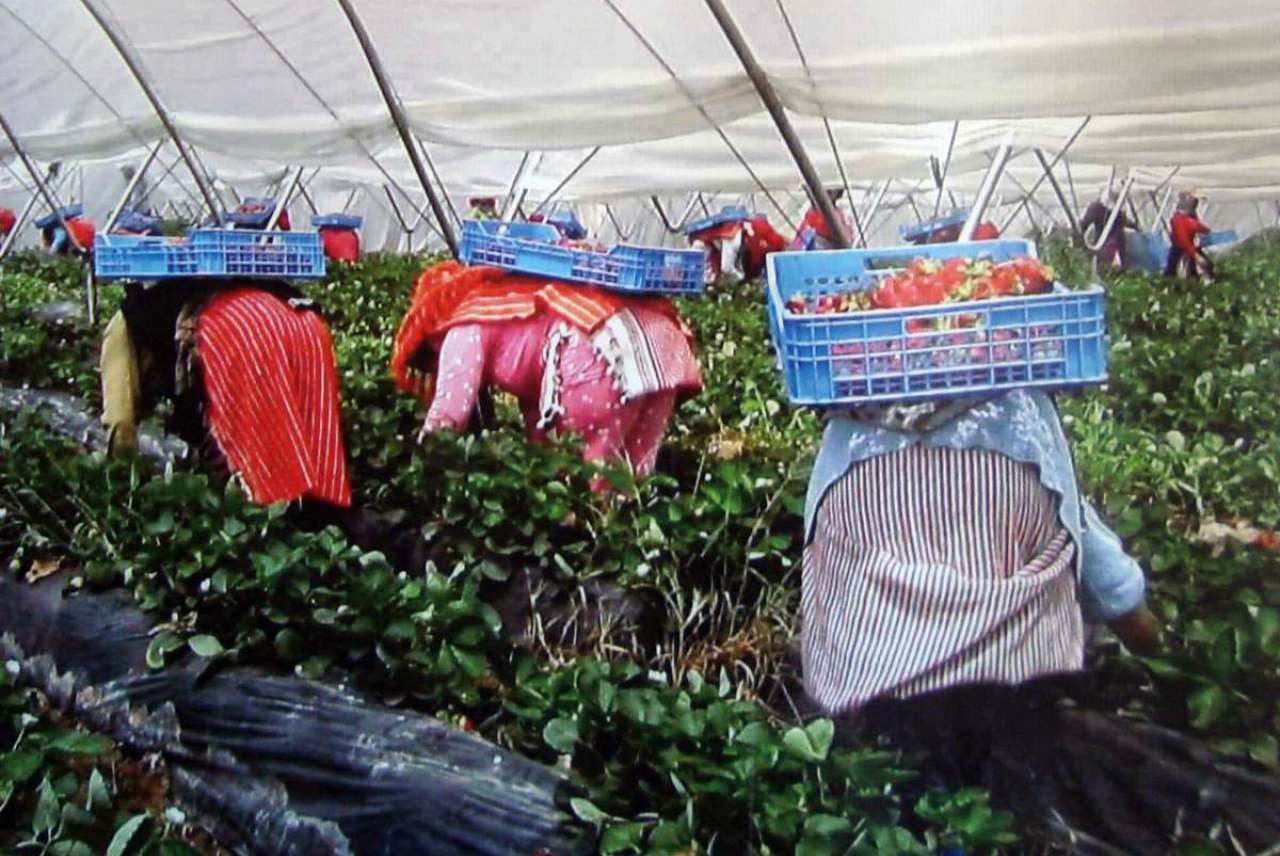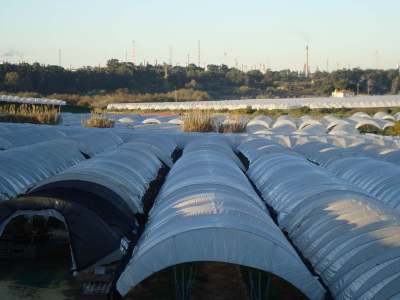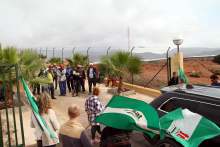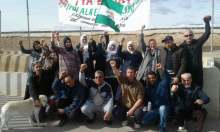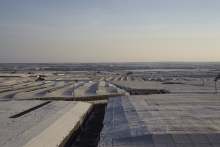Every year, thousands of Moroccan women move across the sea to Huelva in Andalusia, Spain for the soft fruit picking season. Often selected because they are widows or divorcees, the women arrive to find exploitative conditions including poor pay and accommodation.
The city of Huelva is one of the most contaminated in Spain, and possibly Europe.
The earth, air and water are polluted by radioactivity, chemicals and biological waste. The strawberry, blueberry and blackberry fields sit next to a chemical complex built in the 1960s.
Below the arching plastic tunnels, women crouch or kneel and pick the fruit. There is temporary work in the area for 100,000 in the 2019 picking season.
Brought in on so-called ‘contracts in origin’ to pick the ‘red gold’, the women prop up an industry that generates €300 million per year, has grown by 76% between 2004 and 2016, and is growing still.
Labour shortages in Spain
Farms in the region are often short of labour: a recent call for 20,000 extra workers only elicited 970 applications from Spanish residents. The shortfall was made up by 19,000 women recruited directly from Morocco, 11,500 returned after previous seasons in the area, and 7,500 were recruited for the first time.
These women are subject to what is called ‘contract in origin’, shipped to Spain for the two or three months of the harvest. They are promised the legal wage, social security cover, medical treatment and free lodging in return for their labour, but often these conditions are not met.
This means of recruiting labour has been used since the early 2000's when women from Eastern European were recruited. But in 2016 the industry changed tack and began to recruit Moroccan women who are seen as 'submissive' and often have more difficulties with the language.
Overseen by the Spanish authorities
Several years ago, images emerged of women queuing in public squares, to be examined like slaves for their size, age and hands during the recruitment drives. Now, the Moroccan public employment agency ANAPEC deals with the initial selection process.
The Spanish Ministry of the Interior sets the total number of contracts required and each region of Morocco is allocated a quota. ANAPEC oversees the initial selection, short-listing women between 21 and 45 years of age, with children. Unions believed that single women with children are often selected as they are seen as being in greater need of money and therefore easier to exploit. Priority is also given to those that have worked in Spain before.
The candidates who pass the first cribbing are sent to Meknes for the selection by someone from the company in Spain. This year there is a video explaining the process and what to expect in Spain.
